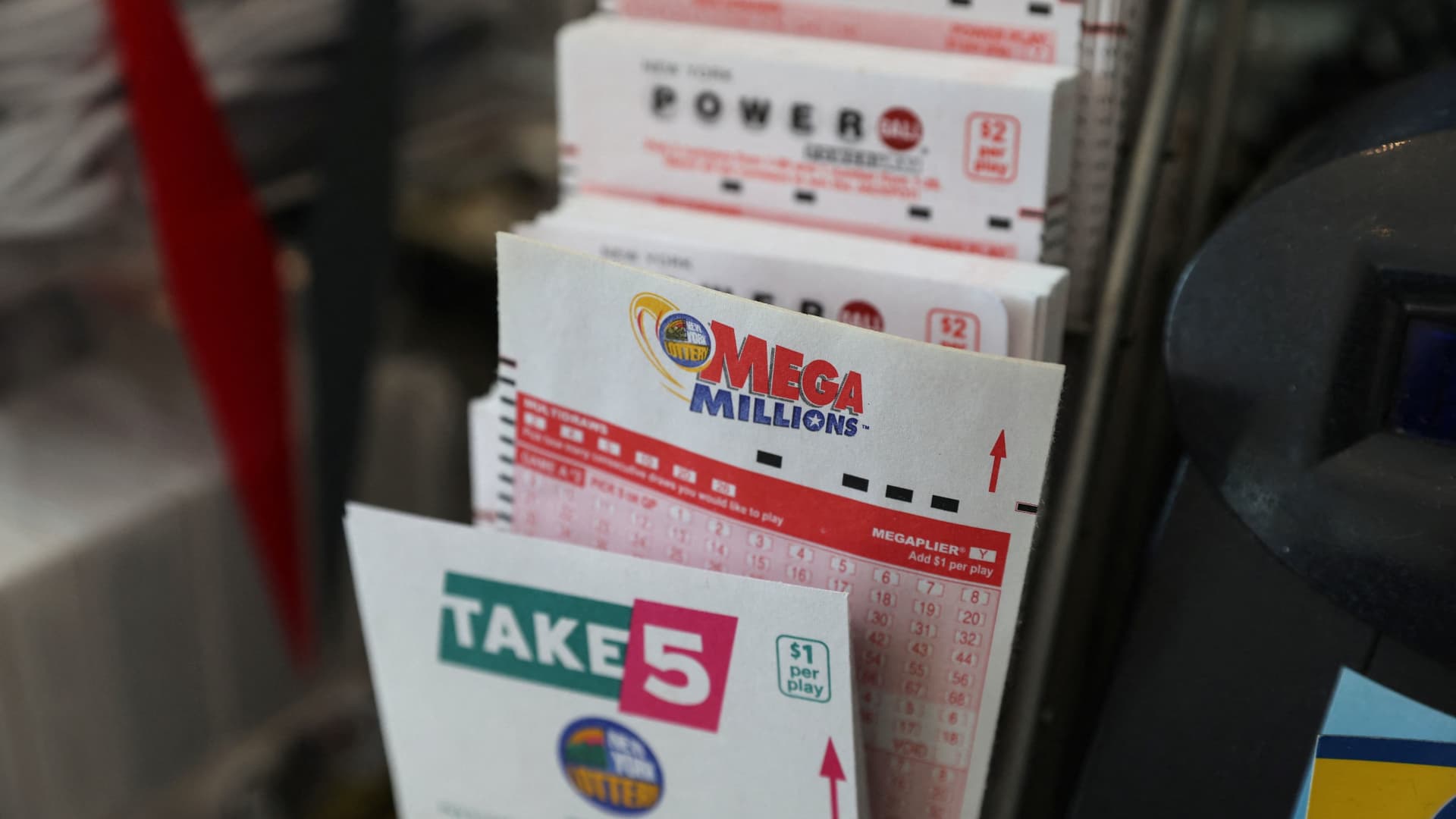Products You May Like
The Mega Millions jackpot has soared to more than $1 billion for the fifth time in the game’s history.
Currently, the 30-year annuitized payout is worth $1.05 billion, Mega Millions’ fourth-largest prize to date. Winners may also choose the popular lump-sum option for a $527.9 million payout.
However, both options are pretax estimates and the winner will pay a sizable chunk to the taxman before seeing a dollar of the proceeds.
Tuesday’s drawing is at 11:00pm ET.
Whether you choose the lump sum or annuitized 30-year payout, it’s important to seek expert guidance, said Tommy Lucas, a certified financial planner and enrolled agent at Moisand Fitzgerald Tamayo in Orlando, Florida.
“Call your estate planning attorney before you do anything,” he said.
Lucas recommends the winner hire a team of experts, including a financial advisor, tax professional, estate planning attorney, bank specialists and more, to navigate a range of financial decisions.
The chance of hitting the Mega Millions jackpot is roughly 1 in 302 million.
Withholding shrinks the prize by nearly $127 million
Before seeing a penny of the billion-dollar jackpot, the Mega Millions winner will pay a sizable chunk in taxes. There’s a mandatory 24% federal withholding for winnings above $5,000 that goes straight to the IRS.
If you choose the $527.9 million lump sum, the 24% federal withholding shrinks the prize by nearly $127 million.
However, that’s not the total tax bill, because the top tax bracket is currently 37%, according to Lucas, who encourages the winner to set aside 40% “just to be conservative.”
How federal tax brackets work
The Mega Millions jackpot easily pushes the winner into the top federal income tax bracket, which is currently 37%. But they won’t pay 37% on the entire windfall because “it’s going to flow through the brackets,” Lucas said.
For 2023, the 37% rate applies to taxable income of $578,126 or more for single filers and $693,751 or higher for couples filing together. You calculate taxable income by subtracting the greater of the standard or itemized deductions from your adjusted gross income.
Single lottery winners will pay $174,238.25, plus 37% of the amount over $578,125. But for couples filing jointly, the total owed is $186,601.50, plus 37% of the amount above $693,750.
The 24% federal withholding may cover a large amount of taxes, but the final bill will likely represent millions more, depending on several factors.
You may also be on the hook for state taxes, depending on where you live and where you bought the ticket. Some states don’t tax lottery winnings or don’t have income taxes, but others may levy above 10% in the top bracket.
Tuesday’s MegaMillions drawing comes less than two weeks after a single ticket sold in California won Powerball’s $1.08 billion jackpot. That game’s top prize is back down to $74 million, with roughly 1 in 292 million odds of winning the jackpot.
